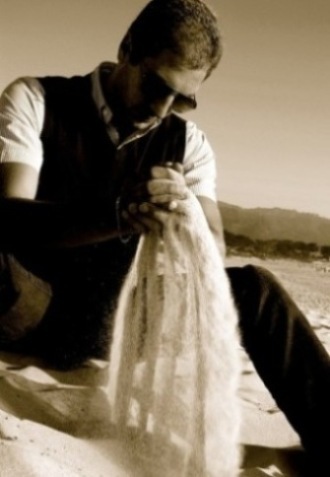In life, there are moments we like, and others that we don’t.
Whenever you have the chance to grasp a moment that you like, remember to do it fully and deeply. Live the moment and don’t only spend it; it will soon be over and might not be back. Focus on the present, and isolate yourself from whatever can ruin your mood. Thinking of the end would only detach you from the moment, and reduce your timely pleasure.
Whenever you are obliged to face a moment that you don’t like, do the best you can to – at least – neutralize it. Don’t hate it; perhaps it’s good for you. Embrace the facts; fighting them would only make it harder and longer. Don’t count the seconds, but let each one of them count. Do the most if you must, and invest in your time; doing a little is better than doing nothing. If you find it boring, get involved, and if you find it irritating, scratch where it itches. Things will run smoother, and time will go faster. How can we forget what Winston Churchill once said: “if you’re going through hell, keep going”.
Reinhold Niebuhr wrote in his Serenity Prayer: “God, grant me the serenity to accept the things I cannot change, the courage to change the things I can, and wisdom to know the difference”. In the opposite order of ideas, three keys are required: the wisdom to differentiate what can be changed from what can’t be changed, the courage to face the former, and the serenity to accept the latter. However, and unfortunately, these keys can be lost or simply unfound. Assuming that wisdom is reached and differentiation done, courage and serenity will still be sought.
If we’re sometimes unaware that we can change something and remain blindly idle, there are times when we’re aware of the possibility but need the courage to act. Seek the possibility in every difficulty, and don’t be blinded by the difficulty in every opportunity. Get rid of the glum, and think positive. Nourish determination, and foster courage. And if there is a remedy to your trouble, find it.
While we’re sometimes unaware that we can’t change something by continuing futile fights, there are times when we refuse to be aware of the impossibility and lack the serenity to accept it. When the cards of life are dealt against your hopes or expectations, do not waste the game on despair and disappointment. In the impossibility of moving backwards, move forward or change direction. A continuous state of dejection would lock you in an irremediable past, and deteriorate your forces. And as Marcus Tullius Cicero once said: "it is foolish to tear one's hair in grief, as though sorrow would be made less by baldness."
Conquer life; don’t let it conquer you. Resist despair with reason, and give place for hope. Aim at boosting the outcome of whatever you have been offered, and optimize what you can’t – or can no longer – change. Set the path you like, and be the change you want.


